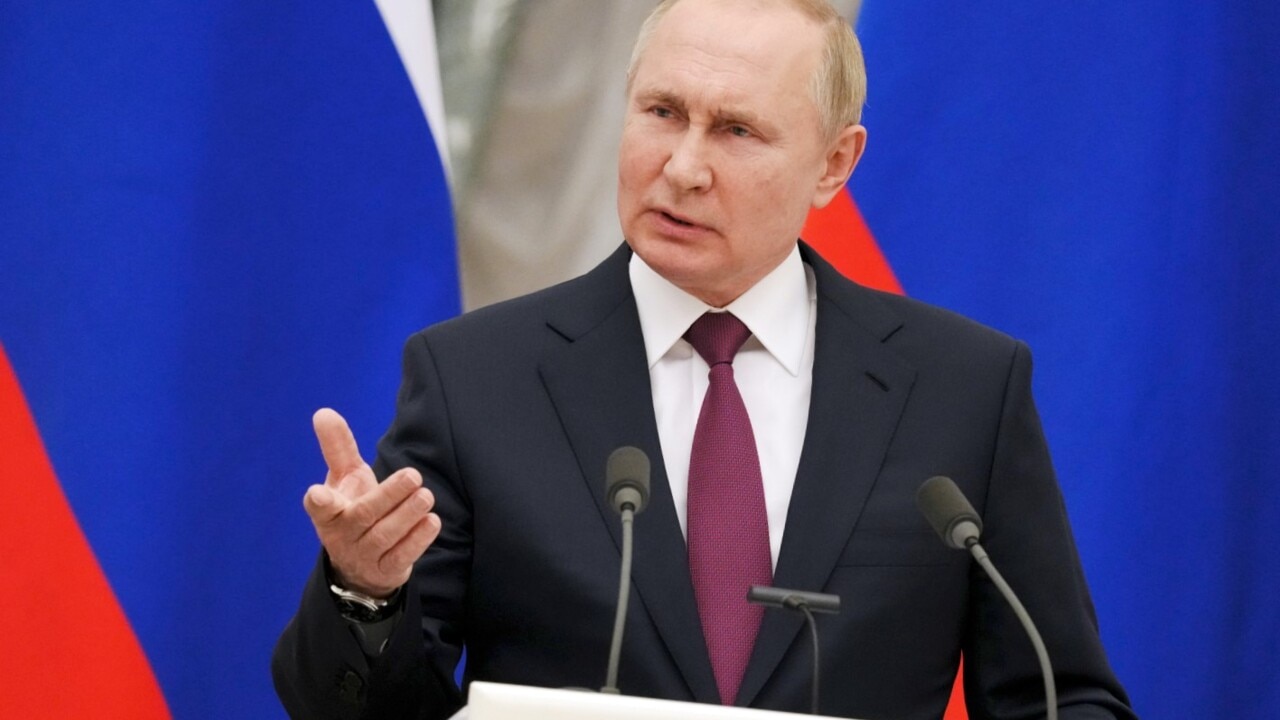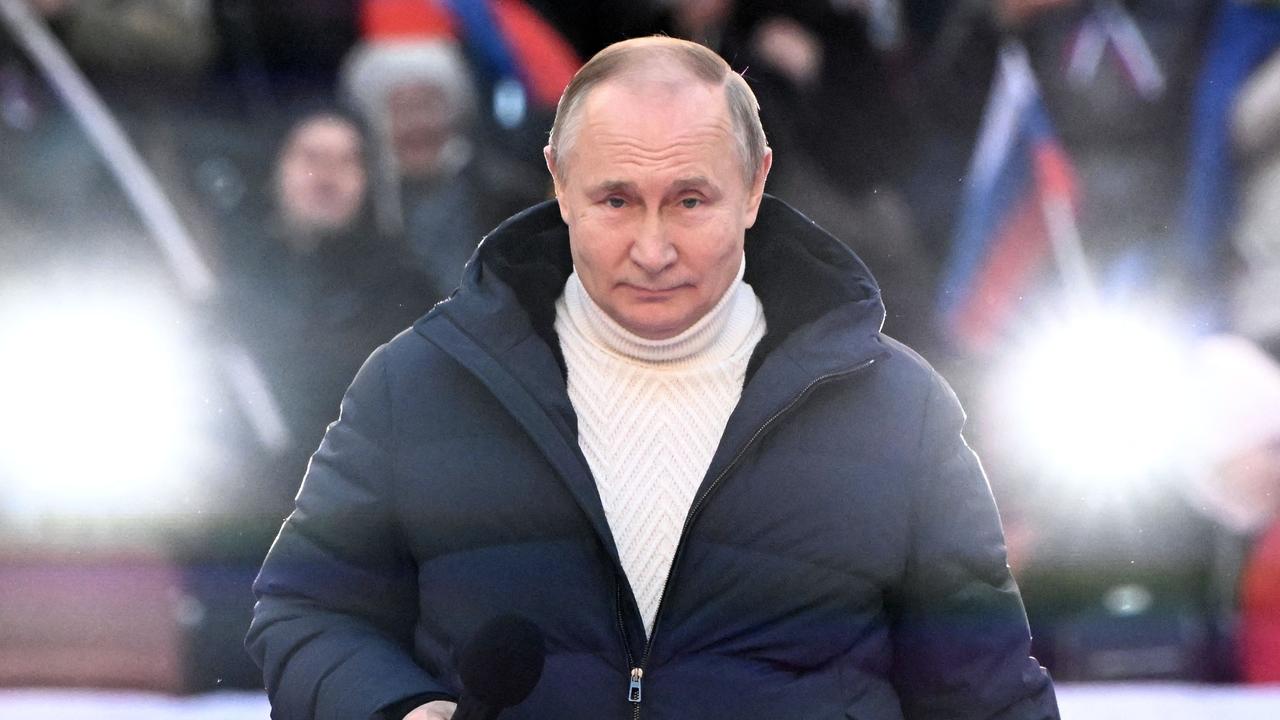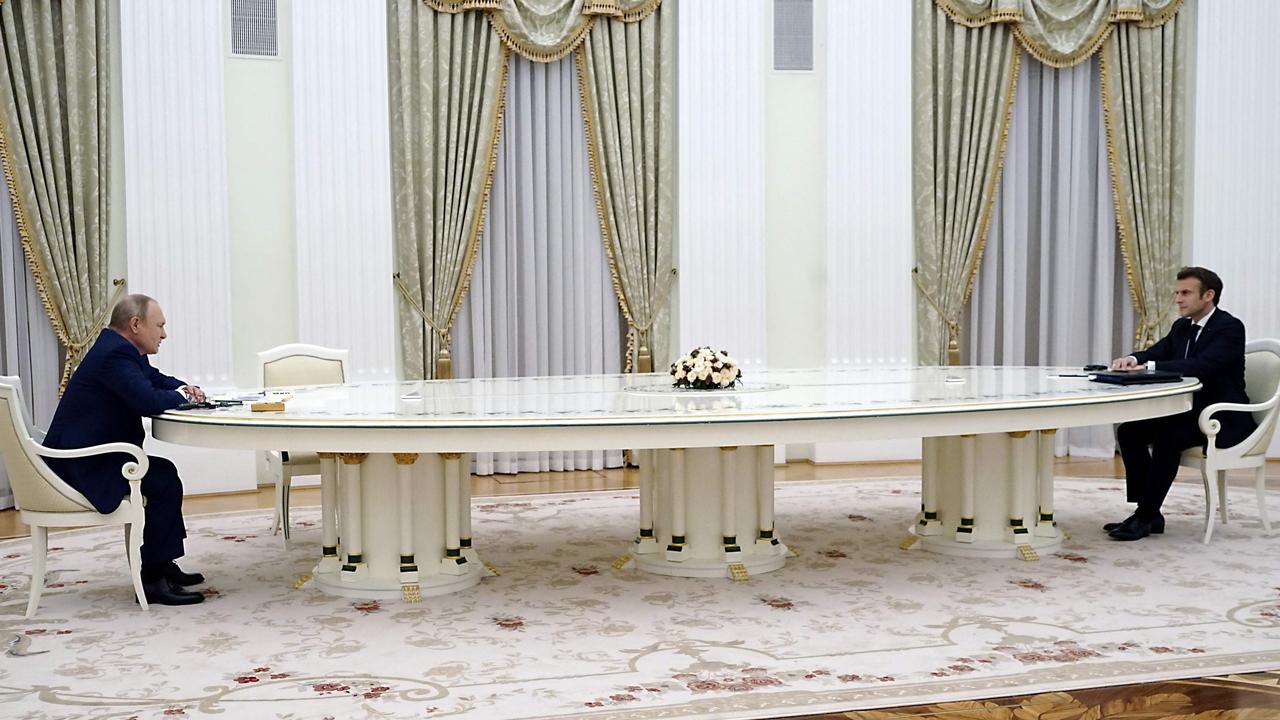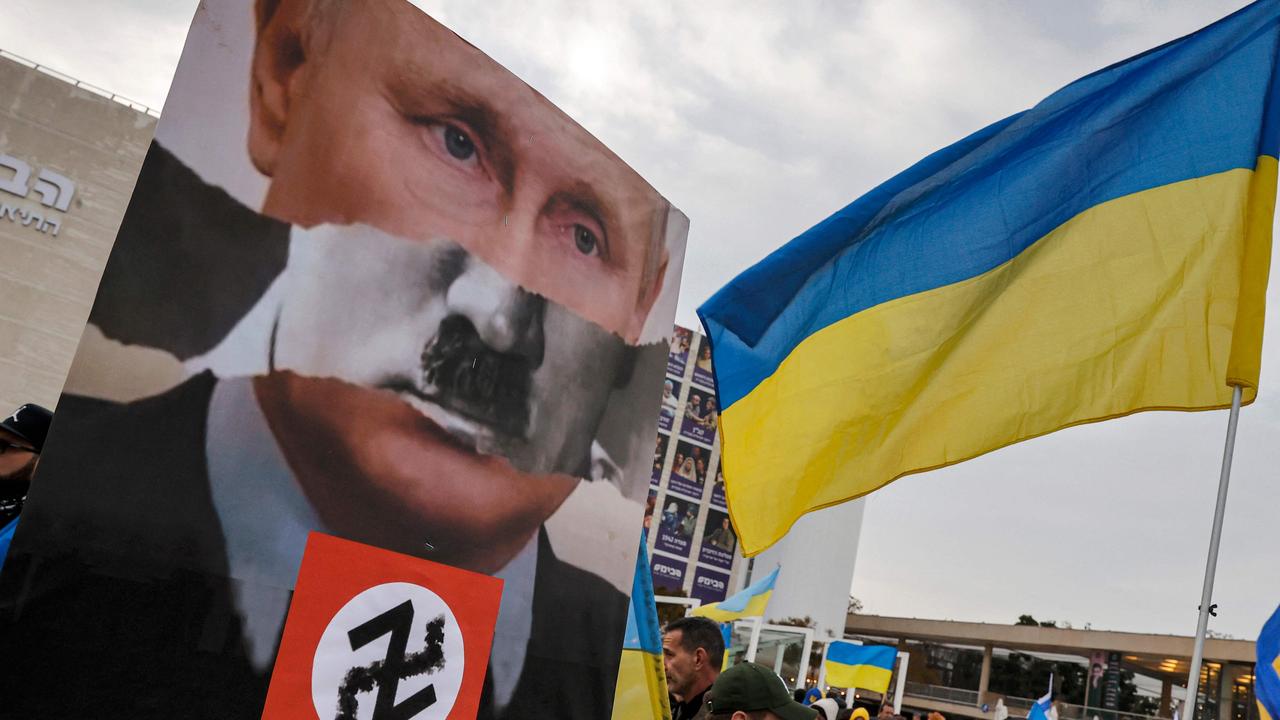Inside Vladimir Putin’s paranoia and fight for survival
There are signs Russian President Vladimir Putin is “losing touch with reality” – and intelligence agencies are using it against him.

Has Russian President Vladimir Putin lost touch with reality? Or is his personal reality so desperate he will do anything to remain top dog?
They’re questions the world’s intelligence agencies are struggling to understand.
Anticipating the answer could have global implications.
“This is a completely sane, healthy person, physically healthy – he’s an athlete,” Belarus strongman Alexander Lukashenko declared at the weekend.
He didn’t explain why he felt the need to say so.
“A sane person does not target civilian innocents — women, children, civilian apartment buildings,” countered former FBI counterintelligence officer Frank Figliuzzi.
“That’s not the actions of a sane man. It’s a man who feels cornered, threatened and is losing touch with reality.”

But other international affairs experts argue the former KGB counterintelligence officer’s behaviour is very sane – if you’re a despot desperately clinging to power.
Former intelligence analyst Andrea Kendall-Taylor and political scientist Professor Erica Frantz argue that Mr Putin simply cannot afford to lose his war with Ukraine.
“First, a Russian military defeat, or even a long grind that undermines perceptions of Putin’s competence, would weaken his hold on power,” they write in Foreign Policy.
“Second, and just as critical, is the fate that Putin expects awaits him should he lose power. If Putin is ousted, similar leaders’ track records suggest Putin stands a high likelihood of being jailed, exiled, or killed.”
Putin’s cancerous paranoia
Former German Chancellor Angela Merkel declared in 2014 that Mr Putin was “in another world”.
French President Macron said after a recent face-to-face meeting that Mr Putin was “more rigid, more isolated” than in the past.
CIA Director William Burns pronounced Mr Putin had “been stewing in a combustible combination of grievance and ambition for many years”.
But nobody is sure of what this means.
“It is extremely hard in a system as well protected as Russia to have good intelligence on what’s happening inside the head of the leader, especially when so many of his own people do not know what is going on,” a former head of Britain’s MI6 Sir John Sawers told the BBC.
“I don’t think he’s crazy, but he is unstable and increasing unpredictable — and that’s a concern for all of us,” Figliuzzi told the US MSNBC network.
And that’s likely because Western intelligence agencies have already been exploiting the greatest weakness of any authoritarian: paranoia.
Three independent sources report that the deputy chief of Russia's Rosgvardia (a unit of RU's interior army which has had tremendous losses in Ukraine), Gen. Roman Gavrilov has been detained by FSB. Gavrilov had also previously worked in FSO, Putin's security service.
— Christo Grozev (@christogrozev) March 17, 2022
Washington’s repeated pre-emptive reveals of Putin’s war and propaganda plans will have unsettled the autocrat, Figliuzzi says. No autocrat would tolerate such public exposure of their plots and ploys.
Cybersecurity expert Dmitri Alperovitch says Putin has been subjected to a highly successful influence campaign.
“This almost certainly deepened Putin’s suspicion that some in his inner circle were working to undermine him and likely influenced his decision to withhold critical information about his plans for Ukraine from the military and national security officials who needed it most,” he writes in Foreign Affairs.
The weakness of one
“Russian policy and Putin’s whims are one and the same,” argue Kendall-Taylor and Frantz. “This is the reality with personalist authoritarians like Putin: The only thing predictable about them is their unpredictability.”
And that applies to their government and military chains of command.
Russia’s confusing actions after Putin gave the order for a “special military operation” in Ukraine fits this pattern.
Documents captured from Russian troops indicate an expectation that the war would have been over by March 6. Basic supplies such as food, fuel and ammunition have proven insufficient to maintain the assault. Crucial military objectives – such as air supremacy – are yet to be achieved.
Many captured troops say they hadn’t expected any actual fighting.
The signs of Putin’s paranoia are there to see.

He’s always pictured sitting or standing alone. And the enormous table from which he holds court has become a symbol of his flagging power.
“Yet for all their apparent absurdity, the images were apt visual representations of Putin’s political position within the Kremlin: fearful about the possibility of betrayal, sceptical of his interlocutors, and isolated from even his most trusted allies and advisers,” Mr Alperovitch adds.
“Unfortunately, the same qualities that led Putin to hide his battle plans from senior leaders in his cabinet make him likely to escalate a conflict that is not going his way.”
Putin assumed his military was well equipped and modernised. He assumed the cronies he promoted to positions of power were competent. He assumed his intelligence agencies had identified desperate political weaknesses within Ukraine and the West.
But, says Mr Alperovitch, the corruption and mismanagement that has been the core of his administration over two decades have come home to roost.
Fight for survival
Putin is reportedly fascinated by the fates of his fellow dictators. He’s said to repeatedly watch videos of Libya’s Colonel Gaddafi’s death and the final moments of Iraq’s Saddam Hussein.
He’s convinced Russia was humiliated by the fall of the Soviet Union.
He’s determined to forge a legacy as the man who restored the Russian Empire.
Now he faces the prospect of being humbled on the battlefield.
And defeated authoritarians are usually imprisoned, exiled, or killed.
“The nearly 70-year-old Russian leader saw the war as an opportunity to re-establish Russian dominance on the global stage,” says Mr Alperovitch.
“Now that it has done the opposite, he is likely more desperate than ever for a decisive victory.”

We can expect further escalations within Ukraine.
We can also expect increasing crackdowns within Russia.
“Putin’s calculus about his own vulnerability and the fate that awaits him if he loses power mean he will pursue increasingly horrific and risky actions,” warn Kendall-Taylor and Frantz. “If Putin feels he is losing ground and risks a military defeat, he will have an even greater incentive to up the ante, including by using a tactical nuclear weapon to avoid defeat. The same logic will shape his actions inside Russia, where Putin is likely to respond to significant opposition with violence.”
Exploiting Putin’s character weaknesses may have given Ukraine a fighting chance.
But that same megalomania risks broadening the scope of the war.
“Washington must not forget that a paranoid and increasingly isolated man rules Russia,” warns Mr Alperovitch, “one who has already made a series of costly miscalculations.”
Jamie Seidel is a freelance writer | @JamieSeidel






